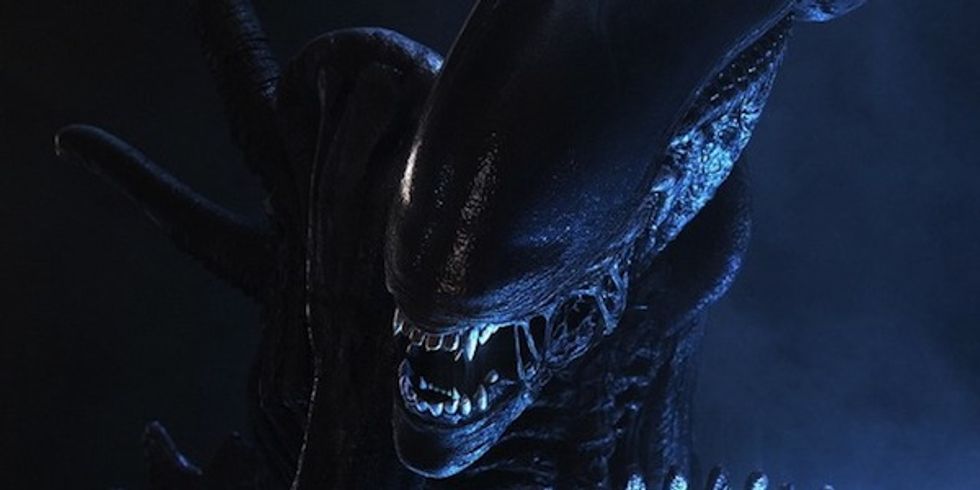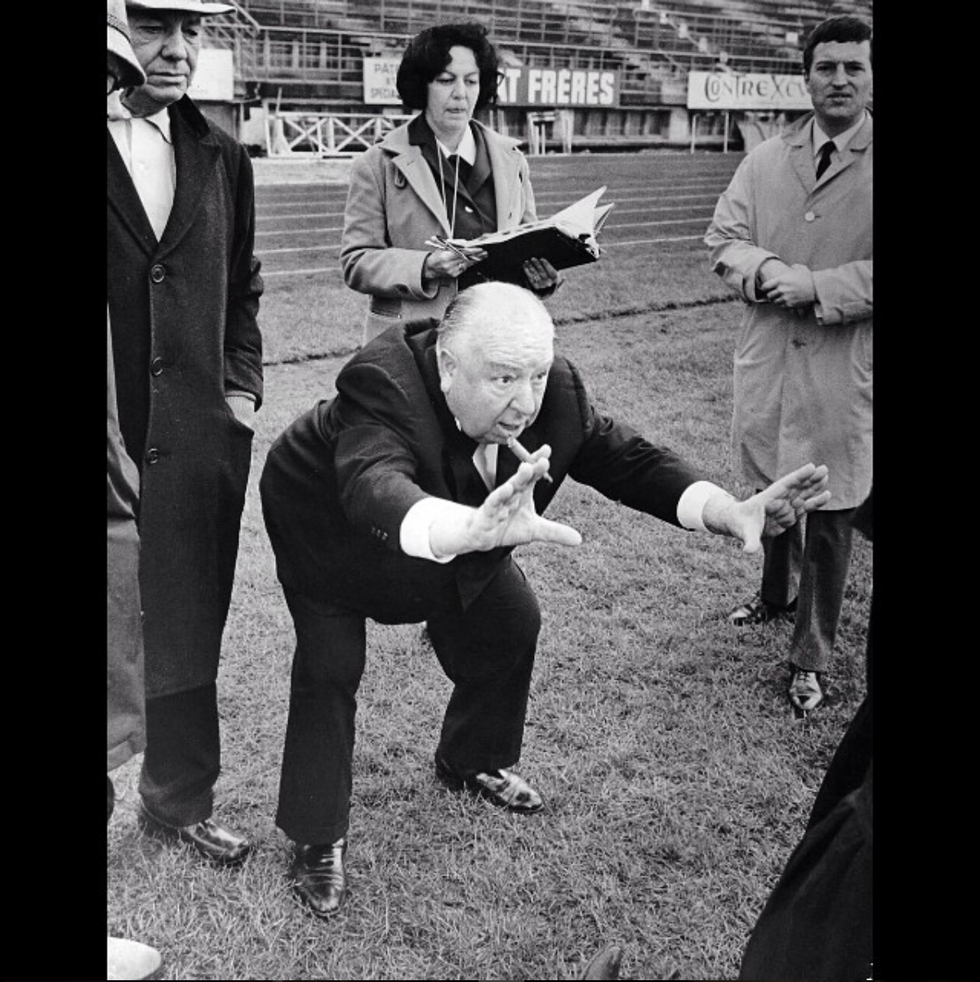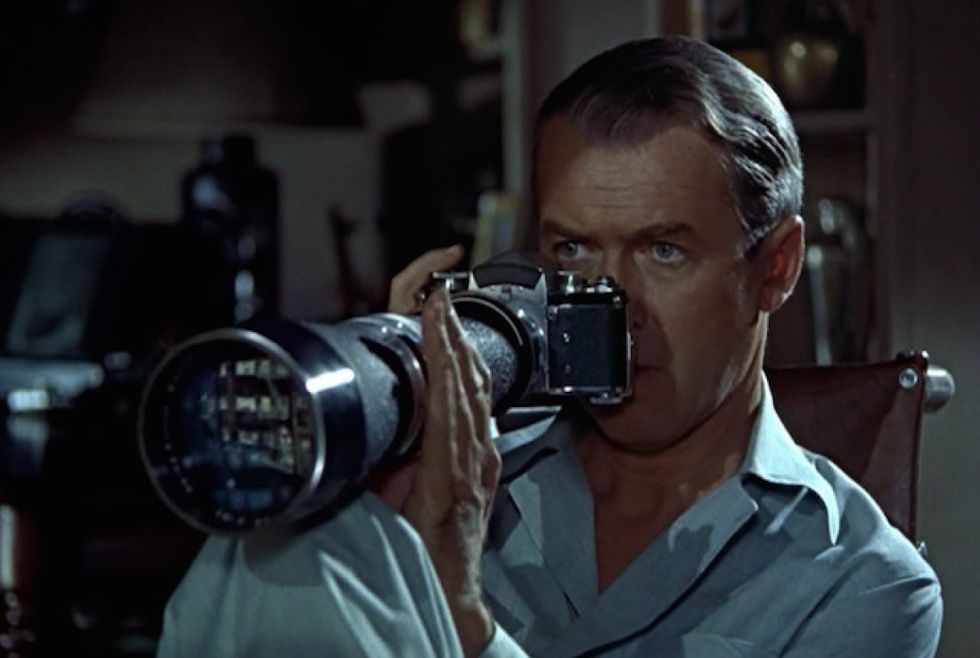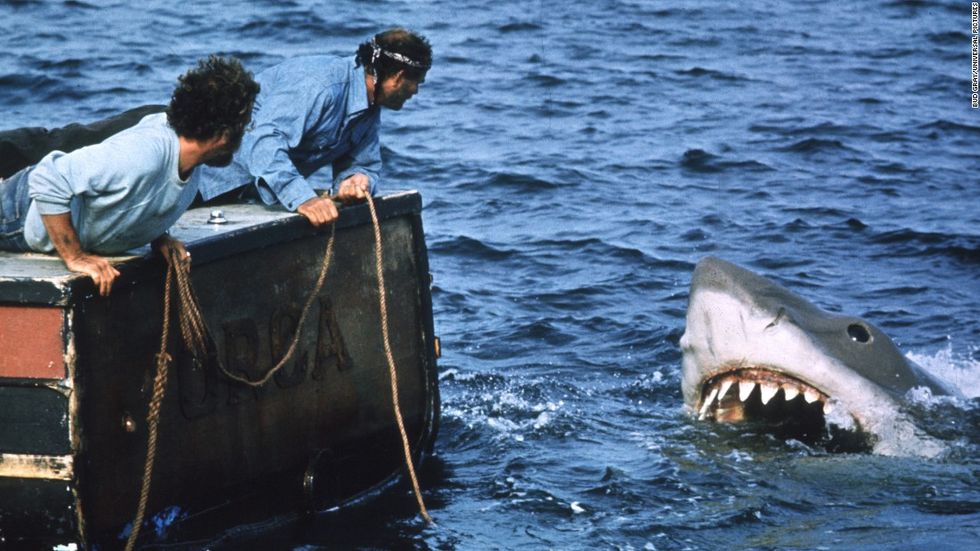Horror’s never really been my thing.
Like, why would I want to willingly be scared? I don’t even enjoy roller coasters that much, so I never really got into voluntary thrill. I mean, if you know me, I absolutely love cinema, I absolutely adore films, and I love nothing more than a great movie. Which is why it always frustrated me to see the newest horror film come out, knowing it was just another cheap thrill moneymaker that would round up the masses for a weekend or two, and then die down. I never really got into horror because it felt like such an effortless genre, as if nobody put work into it.
That really changed this summer though, which was when my dad and I stumbled upon a Hitchcock marathon on TCM, and, surprised that I’d never treated myself to a Hitchcock film, he demanded that I record the entire marathon. I’ve always respected Hitchcock, but I’d never actually seen a film of his for whatever reason. So I was also interested in checking out this legend, this master of cinema. And throughout my viewing of various Hitchcock films, the genre of horror began to unravel itself to me. Eventually I began to see how horror could be a genre not just rooted in shocks and cheap thrill, but rather, the art of suspense.
Suspense is truly an extension of cinematic craft, and in my opinion, it’s the element that makes good horror. The secret sauce, if you will. Horror movies can be made without suspense filmmaking, but all those gory moments and jump scares don’t add up to a cohesive experience. The secret sauce of suspense binds the movie together and makes it truly, truly scary.
With Hitchcock’s films, we deal with pure suspense. Unless we’re talking about Psycho, or The Birds, his films are more subtle. The plots are tightly wound and gripping, but they aren’t made to be horrific or expressly gruesome as a horror film would be. My favorite Hitchcock film is Rear Window, which is definitely thrilling and, in my opinion, the best execution of suspense filmmaking in film history.
So what’s so suspenseful about Rear Window? I think it’s that we’re forced to stay in the same place as Jimmy Stewart’s character. If you haven’t seen Rear Window, it follows a photographer whose leg injury forces him to stay housebound for months. He’s in a place of safety, but he’s also completely vulnerable in that place of safety. Moreover, he has no dominion over the external world, and when he sees things happen outside, he’d love to intervene, but he’s stuck in his wheelchair.
That tension, the unsettling feeling you get from not knowing what could happen or not being able to stop what might happen—that’s the suspense that works so effectively with Hitchcock. Alfred Hitchcock knew better than anyone how to represent and wield the unknown as a powerful subject of his films. He would play the audience like a fiddle with his use of ambiguity and mystery to create his unique brand of suspense. That’s what I appreciate so much about horror: it’s how they wield the unknown.
Some of the best uses of the unknown as a major element in a film come from the classic horror movies. In this day and age, audiences are buying into thicker and thicker fantasies, meaning they’re willing to let reality go for a second to accept whatever premise is handed to them. In the 70s and the 80s though, filmmakers didn’t hand their audiences premises to accept—they gave them mysterious outlines with a set of unsettling questions. This is where we get the fin in Spielberg’s classic 1975 blockbuster Jaws—we don’t get to see what the whole shark looks like for a large part of the film—all we get is a dorsal fin—and that means that the audience creates the picture: they project their worst nightmare of a killer shark onto whatever is attached to that fin.
And oh god how horrifying is that? The ocean in general is so terrifying because it’s so unknown. We can’t even really look at what’s going on under there without eye protection! It’s not man’s domain, which makes it all the more scarier: if we’re not dominant, who or what is? What kind of indomitable monster would that be? I mean, of course we know a lot more about sharks nowadays, but to a 1975 audience that’s doesn’t have easy access to that kind of information, it’s really scary.
Another great, great example is from Ridley Scott’s 1979 masterpiece, Alien, aka my favorite horror movie of all time. It’s so cool, because the setting is hundreds of years into the future—yet still, they’re dealing with something entirely new. People seem to be satisfied with the idea that in the future, we’ll have everything figured out. Well, that’s certainly not true in Alien, and the effects that the titular alien has on the crew are all amplified in terms of scariness because of the crew’s utter inexperience with the nature of this creature. The fact that in a future where we can trust in commercial space exploration and countless scientific developments, a creature may still exist out there that can destroy us—that’s really unsettling. We can never escape nature’s dominion.







 Going to the cinema alone is good for your mental health, says science
Going to the cinema alone is good for your mental health, says science












 women in street dancing
Photo by
women in street dancing
Photo by  man and woman standing in front of louver door
Photo by
man and woman standing in front of louver door
Photo by  man in black t-shirt holding coca cola bottle
Photo by
man in black t-shirt holding coca cola bottle
Photo by  red and white coca cola signage
Photo by
red and white coca cola signage
Photo by  man holding luggage photo
Photo by
man holding luggage photo
Photo by  topless boy in blue denim jeans riding red bicycle during daytime
Photo by
topless boy in blue denim jeans riding red bicycle during daytime
Photo by  trust spelled with wooden letter blocks on a table
Photo by
trust spelled with wooden letter blocks on a table
Photo by  Everyone is Welcome signage
Photo by
Everyone is Welcome signage
Photo by  man with cap and background with red and pink wall l
Photo by
man with cap and background with red and pink wall l
Photo by  difficult roads lead to beautiful destinations desk decor
Photo by
difficult roads lead to beautiful destinations desk decor
Photo by  photography of woman pointing her finger near an man
Photo by
photography of woman pointing her finger near an man
Photo by  closeup photography of woman smiling
Photo by
closeup photography of woman smiling
Photo by  a man doing a trick on a skateboard
Photo by
a man doing a trick on a skateboard
Photo by  two men
two men  running man on bridge
Photo by
running man on bridge
Photo by  orange white and black bag
Photo by
orange white and black bag
Photo by  girl sitting on gray rocks
Photo by
girl sitting on gray rocks
Photo by  assorted-color painted wall with painting materials
Photo by
assorted-color painted wall with painting materials
Photo by  three women sitting on brown wooden bench
Photo by
three women sitting on brown wooden bench
Photo by 
 Photo by
Photo by  Photo by
Photo by  Photo by
Photo by  Photo by
Photo by 


 people sitting on chair in front of computer
people sitting on chair in front of computer



 all stars lol GIF by Lifetime
all stars lol GIF by Lifetime two women talking while looking at laptop computerPhoto by
two women talking while looking at laptop computerPhoto by  shallow focus photography of two boys doing wacky facesPhoto by
shallow focus photography of two boys doing wacky facesPhoto by  happy birthday balloons with happy birthday textPhoto by
happy birthday balloons with happy birthday textPhoto by  itty-bitty living space." | The Genie shows Aladdin how… | Flickr
itty-bitty living space." | The Genie shows Aladdin how… | Flickr shallow focus photography of dog and catPhoto by
shallow focus photography of dog and catPhoto by  yellow Volkswagen van on roadPhoto by
yellow Volkswagen van on roadPhoto by  orange i have a crush on you neon light signagePhoto by
orange i have a crush on you neon light signagePhoto by  5 Tattoos Artist That Will Make You Want A Tattoo
5 Tattoos Artist That Will Make You Want A Tattoo woman biting pencil while sitting on chair in front of computer during daytimePhoto by
woman biting pencil while sitting on chair in front of computer during daytimePhoto by  a scrabbled wooden block spelling the word prizePhoto by
a scrabbled wooden block spelling the word prizePhoto by 








